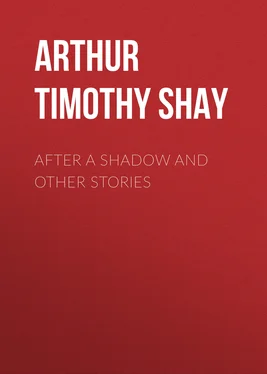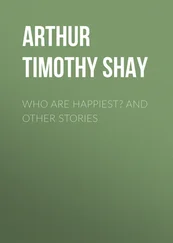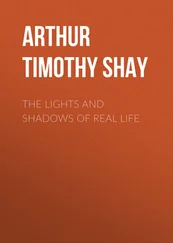Timothy Arthur - After a Shadow and Other Stories
Здесь есть возможность читать онлайн «Timothy Arthur - After a Shadow and Other Stories» — ознакомительный отрывок электронной книги совершенно бесплатно, а после прочтения отрывка купить полную версию. В некоторых случаях можно слушать аудио, скачать через торрент в формате fb2 и присутствует краткое содержание. Жанр: foreign_sf, literature_19, foreign_antique, foreign_prose, на английском языке. Описание произведения, (предисловие) а так же отзывы посетителей доступны на портале библиотеки ЛибКат.
- Название:After a Shadow and Other Stories
- Автор:
- Жанр:
- Год:неизвестен
- ISBN:нет данных
- Рейтинг книги:4 / 5. Голосов: 1
-
Избранное:Добавить в избранное
- Отзывы:
-
Ваша оценка:
- 80
- 1
- 2
- 3
- 4
- 5
After a Shadow and Other Stories: краткое содержание, описание и аннотация
Предлагаем к чтению аннотацию, описание, краткое содержание или предисловие (зависит от того, что написал сам автор книги «After a Shadow and Other Stories»). Если вы не нашли необходимую информацию о книге — напишите в комментариях, мы постараемся отыскать её.
After a Shadow and Other Stories — читать онлайн ознакомительный отрывок
Ниже представлен текст книги, разбитый по страницам. Система сохранения места последней прочитанной страницы, позволяет с удобством читать онлайн бесплатно книгу «After a Shadow and Other Stories», без необходимости каждый раз заново искать на чём Вы остановились. Поставьте закладку, и сможете в любой момент перейти на страницу, на которой закончили чтение.
Интервал:
Закладка:
Mrs. Lovell was deeply afflicted by this news, and abandoned herself, for a while, to excessive grief. Her husband had no consolation to offer, and so remained, for the evening, silent and thoughtful. Andy Lovell did not sleep well that night. Certain things were suggested to his mind, and dwelt upon, in spite of many efforts to thrust them aside. Mrs. Lovell was wakeful also, as was evident to her husband from her occasional sighs, sobs, and restless movements; but no words passed between them. Both rose earlier than usual.
Had Andy Lovell forgotten that he opened his shop door, and put back the shutters, as usual? Was this mere habit-work, to be corrected when he bethought himself of what he had done? Judging from his sober face and deliberate manner—no. His air was not that of a man acting unconsciously.
Absorbed in her grief, and troubled with thoughts of her sister's orphaned children, Mrs. Lovell did not, at first, regard the opening of her husband's shop as anything unusual. But, the truth flashing across her mind, she went in where Lovell stood at his old place by the cutting-board, on which was laid a side of morocco, and said,—
"Why, Andy! I thought you had shut up the shop for good and all."
"I thought so last night, but I've changed my mind," was the low-spoken but decided answer.
"Changed your mind! Why?"
"I don't know what you may think about it, Sally; but my mind's made up." And Andy squared round, and looked steadily into his wife's face. "There's just one thing we've got to do; and it's no use trying to run away from it. That letter didn't come for nothing. The fact is, Sally, them children mustn't be separated. I've been thinking about it all night, and it hurts me dreadfully."
"How can we help it? Mary's dead, and her husband's relations have divided the children round. I've no doubt they will be well cared for," said Mrs. Lovell.
She had been thinking as well as her husband, but not to so clear a result. To bring three little children into her quiet home, and accept years of care, of work, of anxiety, and responsibility, was not a thing to be done on light consideration. She had turned from the thought as soon as presented, and pushed it away from every avenue through which it sought to find entrance. So she had passed the wakeful night, trying to convince herself that her dead sister's children would be happy and well cared for.
"If they are here, Sally, we can be certain that they are well cared for," replied Andy.
"O, dear! I can never undertake the management of three children!" said Mrs. Lovell, her countenance expressing the painful reluctance she felt.
Andy turned partly away from his wife, and bent over the cutting-board. She saw, as he did so, an expression of countenance that rebuked her.
"A matter like this should be well considered," remarked Mrs. Lovell.
"That's true," answered her husband. "So take your time. They're your flesh and blood, you know, and if they come here, you'll have the largest share of trouble with them."
Mrs. Lovell went back into the house to think alone, while Andy commenced cutting out work, his hands moving with the springs of a readier will than had acted through them for a long time.
It took Mrs. Lovell three or four days to make up her mind to send for the children, but the right decision came at last. All this while Andy was busy in his shop—cheerfully at work, and treating the customers, who, hearing that he had changed his mind, were pressing in upon him with their orders, much after the pleasant fashion in which he had treated them in years gone by. He knew that his wife would send for the children; and after their arrival, he knew that he would have increased expenses. So, there had come a spur to action, quickening the blood in his veins; and he was at work once more, with heart and purpose, a happier man, really, than he had been for years.
Two or three weeks passed, and then the long silent dwelling of Andy Lovell was filled with the voices of children. Two or three years have passed since then. How is it with Andy? There is not a more cheerful man in all the village, though he is in his shop early and late. No more complaints from customers. Every one is promptly and cheerfully served. He has the largest run of work, as of old; and his income is sufficient not only to meet increased expenses, but to leave a surplus at the end of every year. He is the bright, sharp knife, always in use; not the idle blade, which had so narrowly escaped, falling from the window, rusting to utter worthlessness in the dew and rain.
IV
A MYSTERY EXPLAINED
"GOING to the Falls and to the White Mountains!"
"Yes, I'm off next week."
"How long will you be absent?"
"From ten days to two weeks."
"What will it cost?"
"I shall take a hundred dollars in my pocket-book! That will carry me through."
"A hundred dollars! Where did you raise that sum? Who's the lender? Tell him he can have another customer."
"I never borrow."
"Indeed! Then you've had a legacy."
"No, and never expect to have one. All my relations are poor."
"Then unravel the mystery. Say where the hundred dollars came from."
"The answer is easy. I saved it from my salary."
"What?"
"I saved it during the last six months for just this purpose, and now I am to have two weeks of pleasure and profit combined."
"Impossible!"
"I have given you the fact."
"What is your salary, pray?"
"Six hundred a year."
"So I thought. But you don't mean to say that in six months you have saved one hundred dollars out of three hundred?"
"Yes; that is just what I mean to say."
"Preposterous. I get six hundred, and am in debt."
"No wonder."
"Why no wonder?"
"If a man spends more than he receives, he will fall in debt."
"Of course he will. But on a salary of six hundred, how is it possible for a man to keep out of debt?"
"By spending less than he receives."
"That is easily said."
"And as easily done. All that is wanted is prudent forethought, integrity of purpose, and self-denial. He must take care of the pennies, and the pounds will take care of themselves."
"Trite and obsolete."
"True if trite; and never obsolete. It is as good doctrine to-day as it was in poor Richard's time. Of that I can bear witness."
"I could never be a miser or a skinflint."
"Nor I. But I can refuse to waste my money in unconsidered trifles, and so keep it for more important things; for a trip to Niagara and the White Mountains, for instance."
The two young men who thus talked were clerks, each receiving the salary already mentioned—six hundred dollars. One of them, named Hamilton, understood the use of money; the other, named Hoffman, practised the abuse of this important article. The consequence was, that while Hamilton had a hundred dollars saved for a trip during his summer vacation, Hoffman was in debt for more than two or three times that amount.
The incredulous surprise expressed by Hoffman was sincere. He could not understand the strange fact which had been announced. For an instant it crossed his mind that Hamilton might only have advanced his seeming impossible economy as a cover to dishonest practices. But he pushed the thought away as wrong.
"Not much room for waste of money on a salary of six hundred a year," answered Hoffman.
"There is always room for waste," said Hamilton. "A leak is a leak, be it ever so small. The quart flagon will as surely waste its precious contents through a fracture that loses only a drop at a time, as the butt from which a constant stream is pouring. The fact is, as things are in our day, whether flagon or butt, leakage is the rule not the exception."
"I should like to know where the leak in my flagon is to be found," said Hoffman. "I think it would puzzle a finance committee to discover it."
Читать дальшеИнтервал:
Закладка:
Похожие книги на «After a Shadow and Other Stories»
Представляем Вашему вниманию похожие книги на «After a Shadow and Other Stories» списком для выбора. Мы отобрали схожую по названию и смыслу литературу в надежде предоставить читателям больше вариантов отыскать новые, интересные, ещё непрочитанные произведения.
Обсуждение, отзывы о книге «After a Shadow and Other Stories» и просто собственные мнения читателей. Оставьте ваши комментарии, напишите, что Вы думаете о произведении, его смысле или главных героях. Укажите что конкретно понравилось, а что нет, и почему Вы так считаете.











